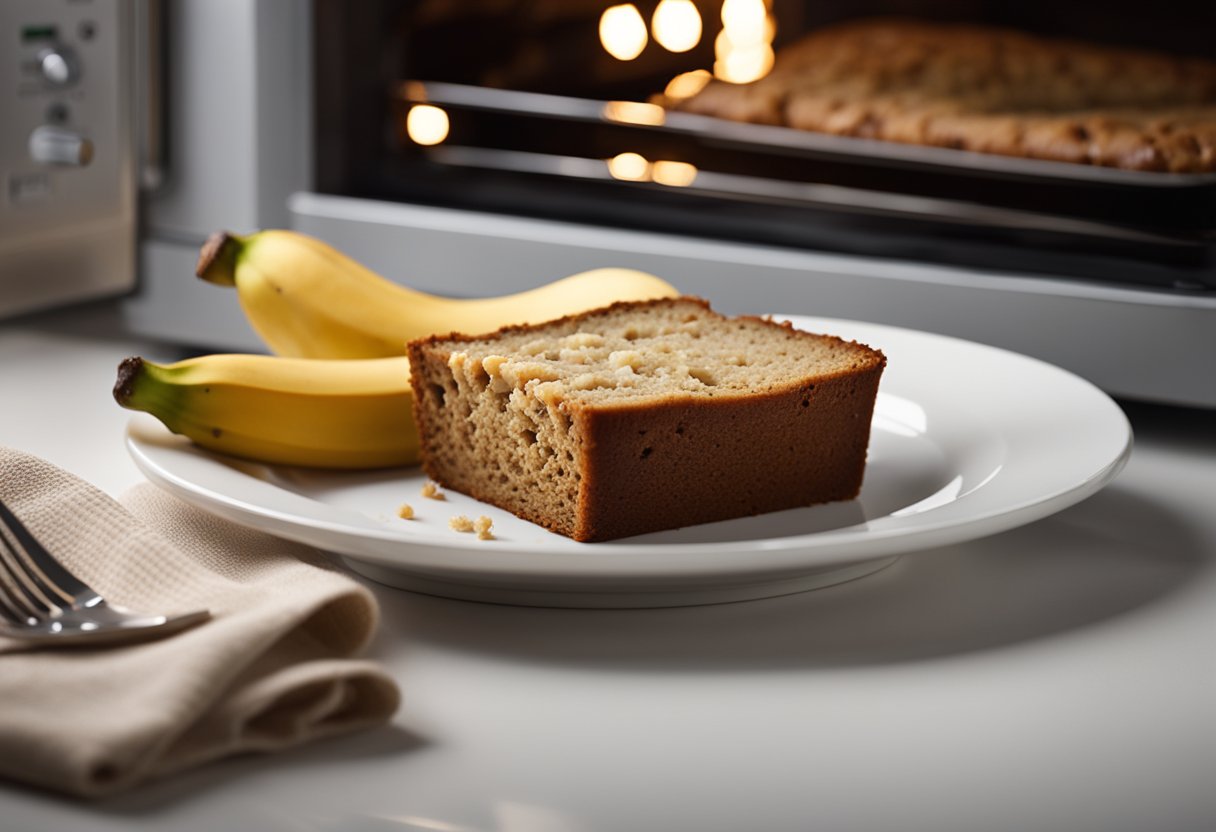As a lover of smoothies and banana-based treats, I have found that freezing bananas is an excellent way to preserve them for later use. However, not all methods of freezing bananas are created equal.
In this article, I will share the best way to freeze bananas to ensure that they retain their flavor, texture, and nutritional value.
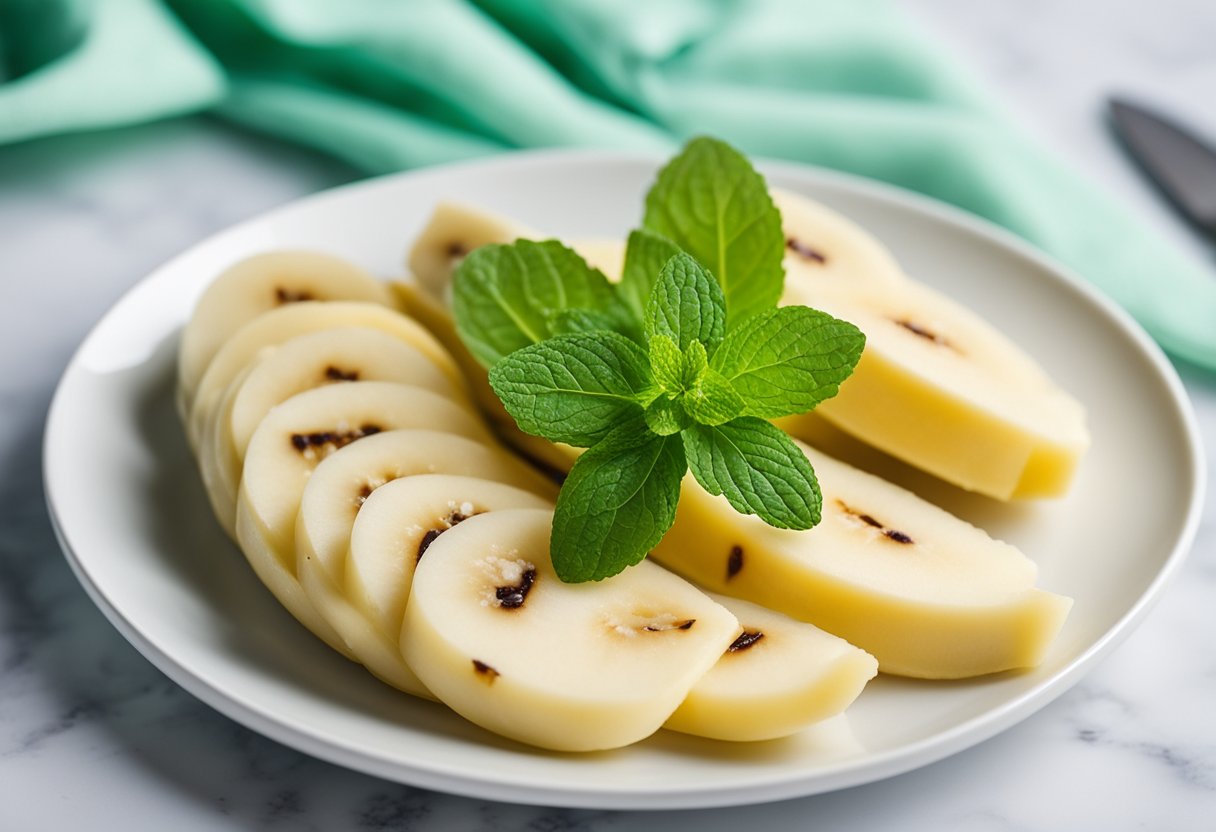
Understanding the importance of freezing bananas is crucial. Bananas are a perishable fruit that can quickly turn brown and mushy if not stored correctly.
Freezing bananas is an excellent way to prevent waste and ensure that you always have ripe bananas on hand for smoothies, baking, or snacking. However, freezing bananas requires proper preparation and storage to ensure that they remain fresh and tasty.
Choosing the right bananas for freezing is essential. Bananas that are too green or unripe will not have a sweet flavor, while overripe bananas may be too soft or have an unpleasant texture after freezing.
In the following sections, I will discuss the best preparation steps and methods for freezing bananas to ensure that they remain fresh and delicious.
Key Takeaways
- Choose ripe bananas for freezing to ensure a sweet flavor and good texture.
- Proper preparation and storage are crucial for freezing bananas.
- Freezing bananas is an excellent way to prevent waste and always have ripe bananas on hand.
Understanding the Importance of Freezing Bananas
When it comes to bananas, freezing is an excellent way to preserve their freshness and extend their shelf life. Whether you have a surplus of ripe bananas that you can’t eat in time or want to keep them on hand for smoothies, baking, or other recipes, freezing is the way to go.
Freezing bananas is a simple process that involves peeling and slicing the fruit before storing it in the freezer. You can freeze whole bananas, sliced bananas, or mashed bananas, depending on your preference and intended use.
One of the main benefits of freezing bananas is that it allows you to enjoy them even when they are out of season. You can freeze ripe bananas when they are at their peak, and use them later when they are not available or are too expensive to buy.
Another advantage of freezing bananas is that it helps prevent food waste. Overripe bananas that are too soft or brown to eat can still be frozen and used in smoothies, baking, or other recipes.
Freezing also allows you to buy bananas in bulk, which is often more cost-effective than buying them in small quantities.
When freezing bananas, it is important to consider their ripeness. Green bananas are not suitable for freezing as they will not ripen properly once thawed. On the other hand, brown or overripe bananas are ideal for freezing as they are soft and sweet, which makes them perfect for baking or smoothies.
It is also crucial to store frozen bananas properly to ensure they remain safe to eat. You should always use airtight containers or freezer bags to prevent freezer burn and keep the bananas fresh. Properly stored frozen bananas can last up to six months in the freezer.
In summary, freezing bananas is a versatile and convenient way to preserve their freshness and extend their shelf life. Whether you prefer whole bananas, sliced bananas, or mashed bananas, freezing is a safe and effective way to enjoy this nutritious fruit all year round.
Choosing the Right Bananas for Freezing
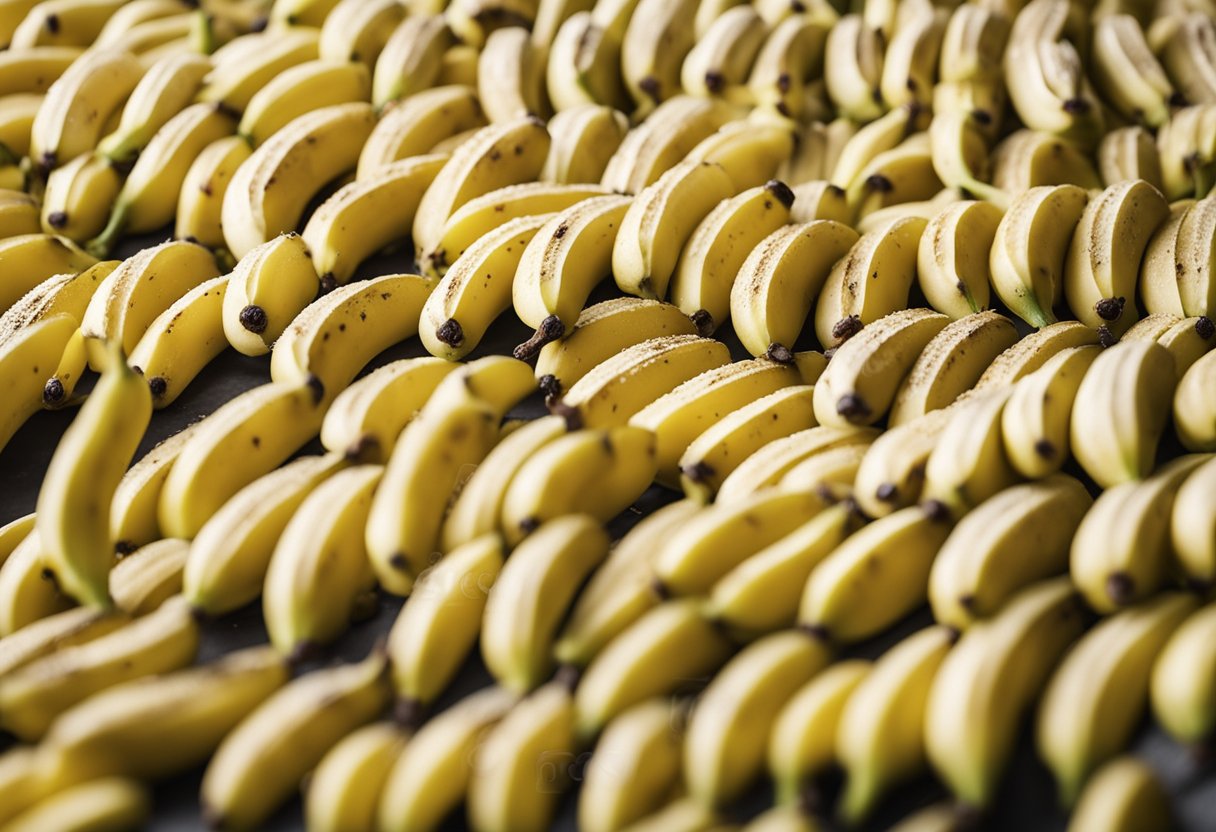
When it comes to freezing bananas, choosing the right bananas is crucial. Not all bananas are created equal, and some are better suited for freezing than others. Here are some tips to help you choose the right bananas for freezing:
Ripe Bananas are Best
Ripe bananas are the best bananas for freezing. They are sweeter and softer than green bananas, which makes them perfect for smoothies, baked goods, and other frozen treats. When bananas ripen, their starches turn into sugars, which gives them a sweeter flavor and softer texture.
Avoid Overripe Bananas
While ripe bananas are perfect for freezing, overripe bananas are not. Overripe bananas are too soft and mushy, which can make them difficult to work with.
They can also develop an unpleasant flavor and aroma. If your bananas are too brown and mushy, it’s best to use them for baking or discard them altogether.
Green Bananas are Not Ideal
Green bananas are not ideal for freezing. They are too starchy and not sweet enough, which can result in a bland and unappetizing frozen treat. If you have green bananas that you want to freeze, it’s best to wait until they ripen first.
Choose Bananas Based on Ripeness
When choosing bananas for freezing, it’s important to consider their ripeness. If you want a sweeter and softer frozen treat, choose ripe bananas. If you want a less sweet and firmer frozen treat, choose bananas that are still slightly green.
In summary, when choosing bananas for freezing, it’s best to choose ripe bananas that are not overripe. Avoid green bananas, as they are not ideal for freezing. By following these tips, you can ensure that your frozen banana treats turn out delicious and satisfying.
Preparation Steps Before Freezing
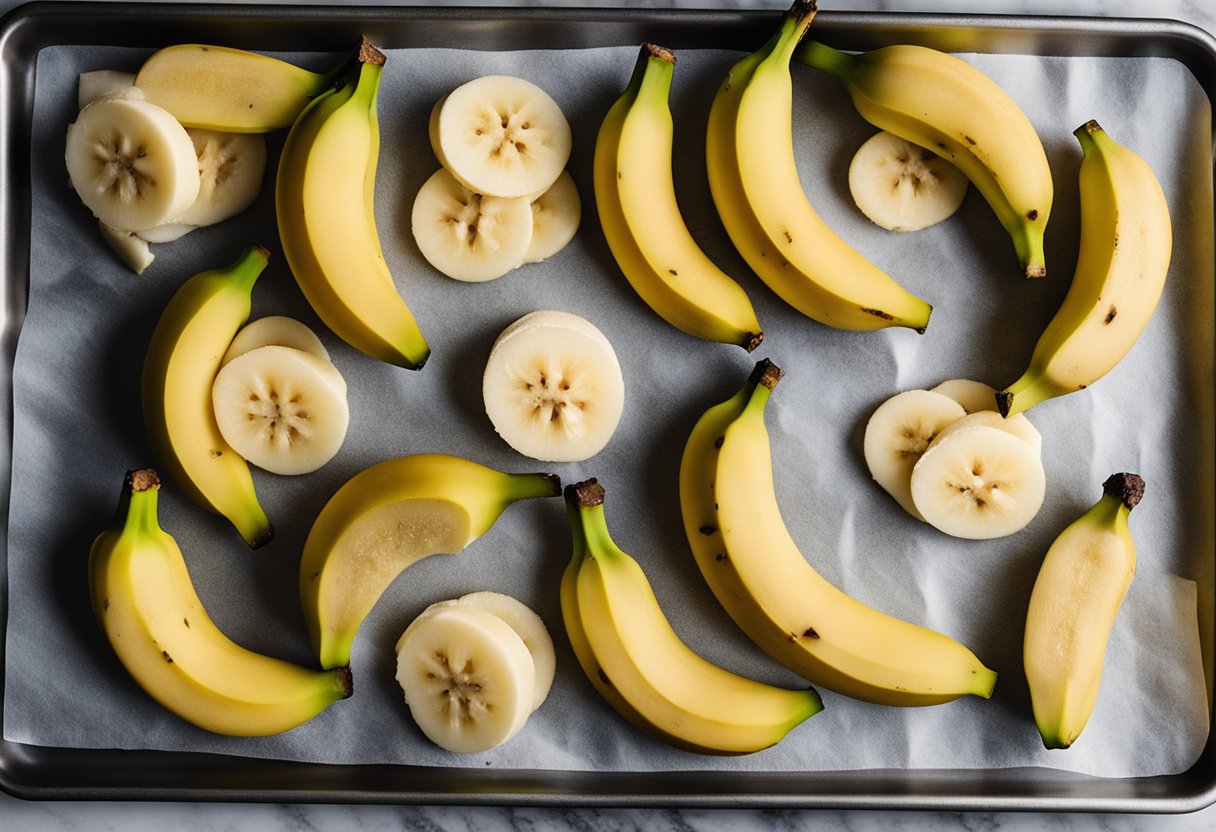
Before freezing bananas, it is important to prepare them properly to ensure that they freeze well and maintain their quality. Here are some steps to follow:
Choose Ripe Bananas
Choose ripe bananas for freezing. They should be yellow with brown spots and soft to the touch. Overripe bananas work well too. Green or unripe bananas are not recommended as they will not have developed their full flavor and sweetness.
Decide Whether to Freeze Whole, Sliced, or Mashed Bananas
Decide whether to freeze whole, sliced, or mashed bananas depending on your intended use. Whole bananas are best for making banana bread or using as an egg replacement.
Sliced bananas are ideal for adding to smoothies or making banana ice cream. Mashed bananas are perfect for baking or making banana pancakes.
Prepare Bananas for Freezing
Peel the bananas and cut into chunks or slices as desired. You can also mash them with a fork or potato masher.
For sliced or mashed bananas, line a parchment-lined baking sheet or silicone mat with parchment paper to prevent sticking. Arrange the bananas in a single layer on the prepared sheet. For whole bananas, simply place them in a plastic freezer bag.
Flash-Freeze
Flash-freeze the bananas to prevent them from sticking together. Place the prepared bananas in the freezer for 1-2 hours until frozen. Once frozen, transfer them to a resealable freezer bag or airtight container. Label and date the container before returning it to the freezer.
By following these simple preparation steps, you can freeze bananas easily and ensure that they maintain their quality and flavor.
Methods to Freeze Bananas
When it comes to freezing bananas, there are a variety of methods to choose from. Each method has its own benefits and drawbacks, so it’s important to choose the one that works best for your needs.
In this section, I’ll cover the most popular methods for freezing bananas and provide some tips for getting the best results.
Whole Bananas
Freezing whole bananas is a great option if you plan on using them for baking or smoothies. To freeze whole bananas, simply peel them and place them in a resealable plastic bag or freezer container.
Make sure to label the bag or container with the date so you know when you froze them. Whole bananas can be frozen for up to 6 months.
Sliced Bananas
If you plan on using your frozen bananas for smoothies or banana bread, slicing them is a great option. To freeze sliced bananas, simply peel and slice them into 1/2-inch pieces.
Place the slices on a parchment-lined baking sheet and freeze for 1-2 hours, or until they are firm. Once the slices are frozen, transfer them to a resealable plastic bag or freezer container. Sliced bananas can be frozen for up to 6 months.
Mashed Bananas
If you have overripe bananas that you don’t want to go to waste, consider mashing them and freezing them for later use. To freeze mashed bananas, simply mash them with a fork or potato masher and place them in an airtight container or resealable plastic bag.
Make sure to label the container or bag with the date so you know when you froze them. Mashed bananas can be frozen for up to 6 months.
Tips for Freezing Bananas
No matter which method you choose, there are a few tips that can help you get the best results:
- Use ripe bananas: The best bananas to freeze are ones that are ripe and have brown spots. These bananas are sweeter and will have a better flavor when thawed.
- Use airtight containers: Whether you’re using a plastic bag or a container, make sure it’s airtight to prevent freezer burn.
- Label your containers: Make sure to label your containers with the date so you know when you froze them.
- Freeze on a flat surface: When freezing sliced bananas, make sure to freeze them on a flat surface (like a baking sheet) before transferring them to a container. This will prevent them from sticking together.
How to Thaw Frozen Bananas
When it comes to baking with frozen bananas, thawing them is a crucial step. Here are some methods to thaw frozen bananas:
Room Temperature Method
One of the easiest ways to thaw frozen bananas is to let them sit at room temperature. Simply remove the frozen bananas from the freezer and place them on the counter.
Make sure you place them in a bowl as bananas thaw, they release a liquid and it can get messy! They will usually be fully thawed within 2 hours.
Microwave Method
The quickest way to thaw frozen bananas is to use a microwave. Place the frozen bananas in a microwave-safe dish and microwave them on the defrost setting for 2-3 minutes. Check them every 30 seconds and remove them from the microwave once they are thawed.
Hot Water Method
Another way to thaw frozen bananas is to put them in a bag and submerge them in hot water for a few minutes. Make sure the water is not boiling, as this can cook the bananas. This method is faster than letting them thaw at room temperature, but slower than using a microwave.
Refrigerator Method
If you have time, the best way to thaw frozen bananas is to let them thaw slowly in the refrigerator. Simply transfer the frozen bananas to a container and place them in the fridge overnight. This method will result in the best texture and flavor for your baked goods.
No matter which method you choose, make sure to use the thawed bananas immediately. Once bananas are thawed, they can quickly become mushy and overripe.
Avoiding Common Freezing Mistakes
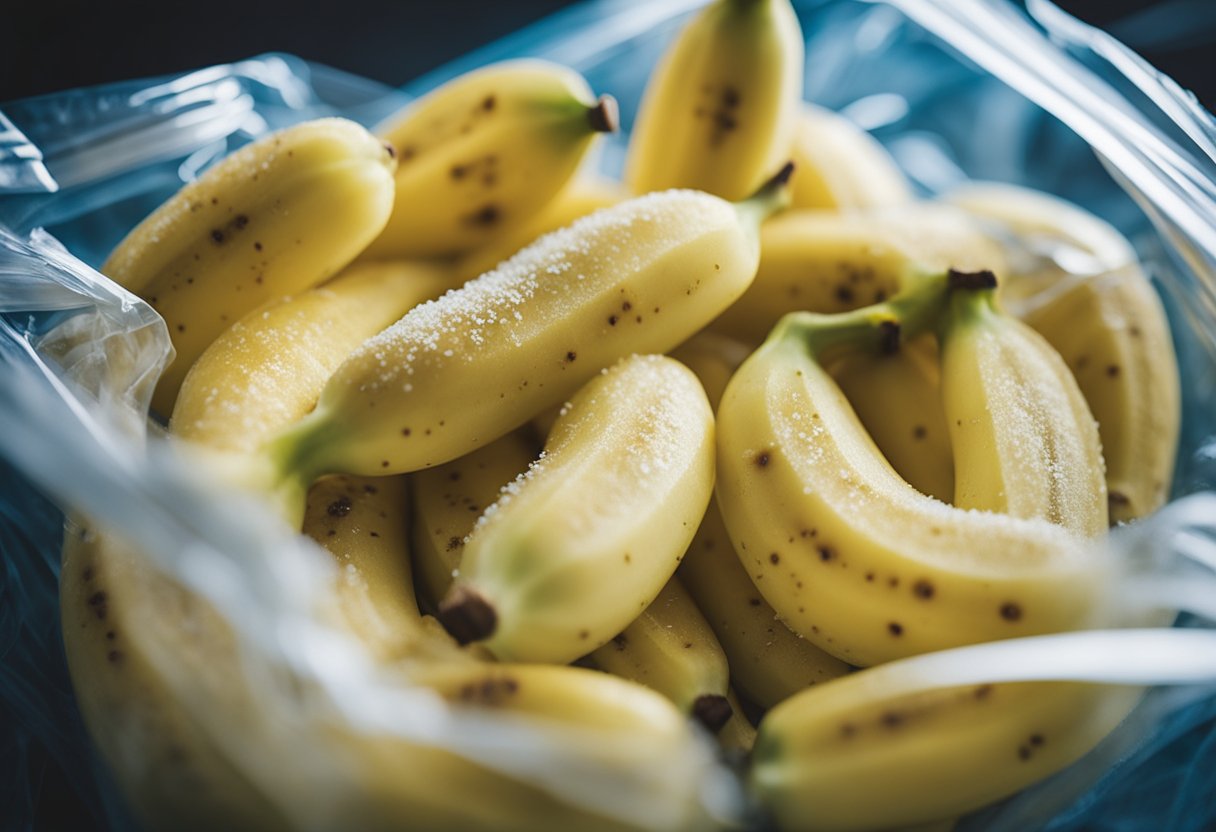
When it comes to freezing bananas, there are a few common mistakes that people often make. Here are some tips to avoid these mistakes and ensure that your frozen bananas turn out perfectly.
Choosing the Right Bananas
First and foremost, it’s important to choose the right bananas for freezing. Make sure that the bananas are ripe and have plenty of brown spots on the skin. This indicates that the bananas are at their peak sweetness and will taste delicious when frozen.
Preparing the Bananas
Before freezing the bananas, it’s important to prepare them properly. Peel the bananas and cut them into slices or chunks. If you’re planning on using the bananas for smoothies, it’s a good idea to slice them into smaller pieces so that they blend more easily.
Avoiding Browning
One of the biggest concerns when freezing bananas is that they can turn brown. To avoid this, you can add a bit of lemon juice to the bananas before freezing them. Alternatively, you can dip the bananas in a mixture of water and lemon juice to prevent browning.
Preventing Freezer Burn
Freezer burn is another common problem when freezing bananas. To prevent this, make sure that the bananas are stored in an airtight container. This will help to keep out any air that can cause freezer burn.
Avoiding Odors
Finally, it’s important to be mindful of odors when freezing bananas. Bananas can absorb odors from other foods in the freezer, so it’s best to store them in a separate container. You can also use freezer bags that are specifically designed to prevent odors from seeping in.
By following these tips, you can avoid common freezing mistakes and ensure that your frozen bananas turn out perfectly.
Uses of Frozen Bananas
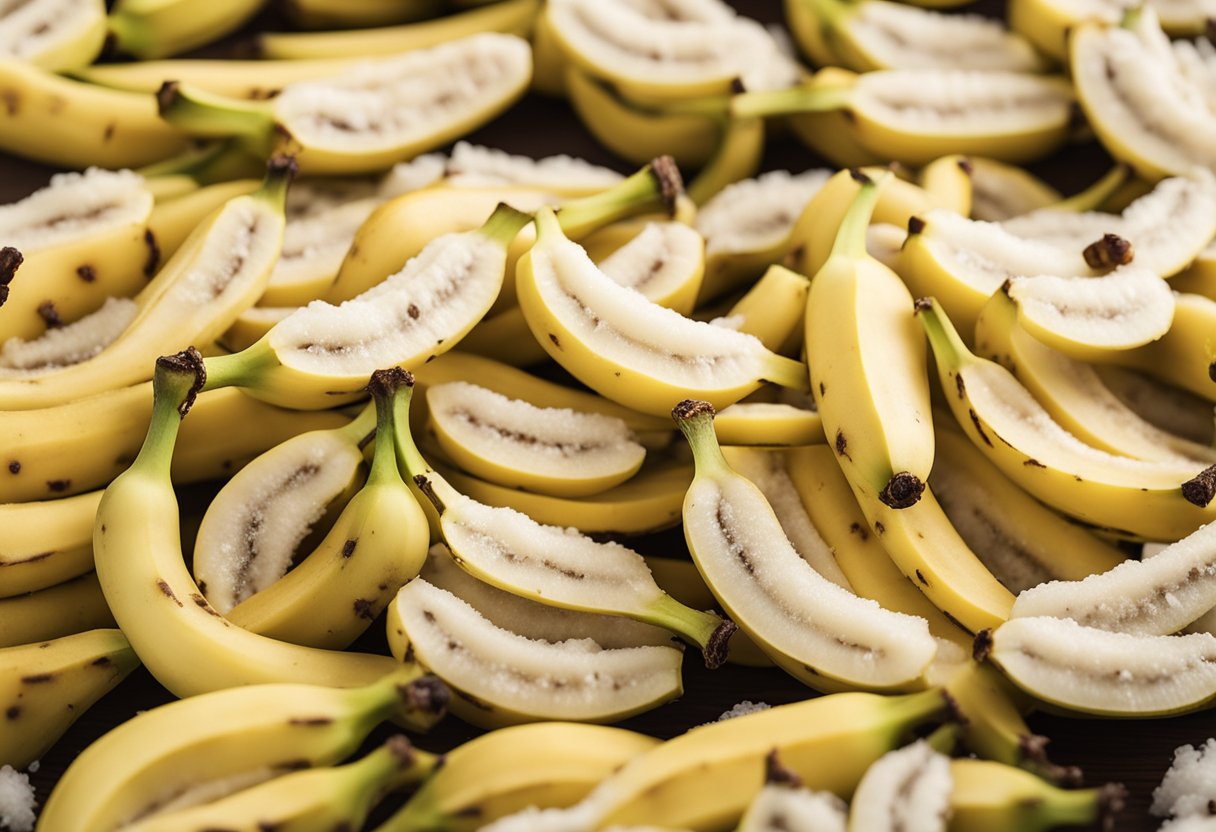
As previously mentioned, freezing bananas is a great way to preserve them for later use. But what can you do with frozen bananas? Here are some ideas:
Smoothies
Frozen bananas are a great addition to smoothies. They add a creamy texture and natural sweetness. Simply blend frozen bananas with your favorite fruits, milk or yogurt, and any other desired ingredients for a delicious and nutritious smoothie.
Baking
Frozen bananas can also be used in baking. Thawed frozen bananas can be mashed and used in recipes for banana bread, muffins, cakes, cookies, and more. They add natural sweetness and moisture to baked goods.
Ice Cream
Frozen bananas can be blended into a creamy and healthy ice cream alternative. Simply blend frozen bananas with a splash of milk or cream, and any other desired ingredients, such as cocoa powder or peanut butter, for a delicious and guilt-free treat.
Oatmeal
Frozen bananas can be added to oatmeal for a sweet and satisfying breakfast. Simply thaw frozen bananas and mash them into cooked oatmeal, along with any desired toppings, such as nuts or berries.
Other Treats
Frozen bananas can be used in a variety of other treats, such as banana muffins, banana pudding, chocolate banana muffins, banana pancakes, and more. They add natural sweetness and moisture to any recipe.
In conclusion, frozen bananas are a versatile ingredient that can be used in a variety of recipes, from smoothies to baked goods to ice cream and more. So next time you have some ripe bananas that you can’t eat right away, consider freezing them for later use in one of these delicious recipes.
Making Banana-Based Treats
When it comes to frozen bananas, the possibilities are endless. From smoothies to banana bread, muffins, cake, ice cream, cookies, banana muffins, banana pudding, chocolate banana muffins, banana pancakes, and more, there are so many delicious treats you can make with this versatile fruit.
One of my favorite ways to use frozen bananas is in smoothies. Simply blend a frozen banana with your favorite milk or yogurt, and add any additional fruits or flavors you like. For an extra special treat, try making banana ice cream by blending frozen bananas until smooth and creamy.
If you’re in the mood for something baked, frozen bananas are perfect for banana bread, muffins, and even breakfast cookies. Just make sure to thaw the bananas before using them in your recipe, and adjust the amount of liquid in the recipe as needed.
For a quick and easy dessert, try making banana pudding with frozen bananas. Simply blend the bananas with some milk, pudding mix, and whipped cream, and you’ll have a delicious and creamy dessert in no time.
And if you’re a fan of chocolate, don’t miss out on chocolate banana muffins or banana cake. These treats are a great way to satisfy your sweet tooth while still getting some of the nutritional benefits of bananas.
In summary, frozen bananas are a versatile and delicious ingredient that can be used in a wide variety of treats and desserts. Whether you’re in the mood for something sweet or something healthy, there’s a frozen banana recipe out there for you.
Health Benefits of Bananas
As someone who enjoys bananas, I always wondered if they were actually healthy for me. After researching, I discovered that bananas contain several essential nutrients that are beneficial to our health.
One of the most well-known benefits of bananas is their high potassium content. Potassium is an essential mineral that helps regulate fluid balance, muscle contractions, and nerve signals. According to Livestrong, one medium-sized banana contains approximately 400-450 mg of potassium, which is about 9-10% of the recommended daily intake for adults.
In addition to potassium, bananas are also a good source of vitamin C, vitamin B6, and fiber. Vitamin C is an antioxidant that helps protect our cells from damage caused by free radicals.
Vitamin B6 is important for brain development and function, as well as the production of red blood cells. Fiber is essential for digestive health and helps regulate blood sugar levels.
Research has also suggested that consuming bananas may have several health benefits. For example, a study published in the Journal of Nutrition and Metabolism found that eating bananas before exercise improved endurance and reduced inflammation in athletes.
Additionally, according to the Harvard School of Public Health, consuming bananas may help lower the risk of heart disease, stroke, and certain types of cancer.
Overall, bananas are a nutritious and delicious fruit that can provide several health benefits. Incorporating them into your diet is a simple way to boost your intake of essential nutrients and potentially improve your overall health.
Frequently Asked Questions
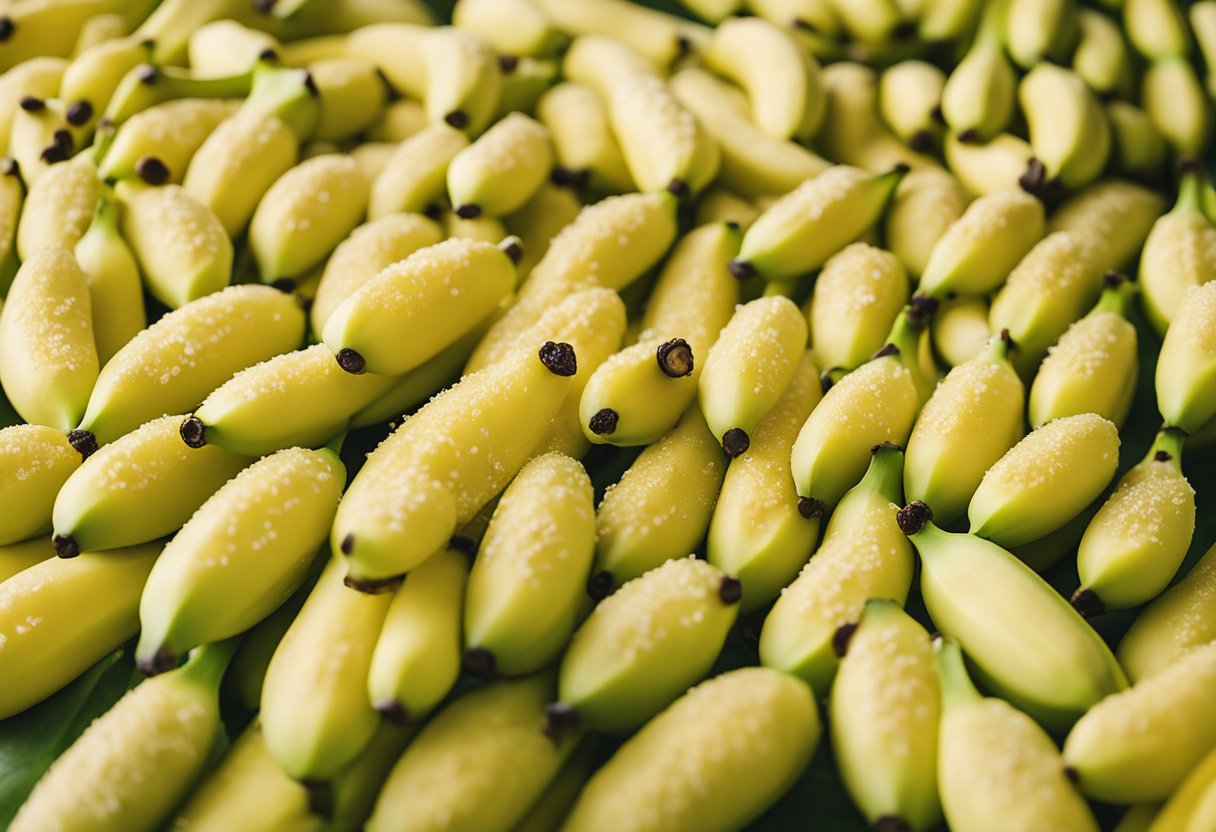
How long can you freeze bananas in the peel?
You can freeze bananas in their peel for up to two months. However, it’s best to peel them and slice them before freezing to prevent the peel from becoming tough and difficult to remove.
Can you eat frozen bananas?
Yes, you can eat frozen bananas. They are great for making smoothies, banana bread, and other baked goods. However, the texture of the banana will change after freezing, so they may not be as enjoyable to eat on their own.
What is the best container to freeze bananas in?
The best container to freeze bananas in is an airtight container or freezer bag. Make sure to remove as much air as possible before sealing to prevent freezer burn.
How to defrost bananas in microwave?
To defrost bananas in the microwave, place them on a microwave-safe plate and microwave on high for 30 seconds to 1 minute, or until thawed. Be sure to remove any plastic wrap or packaging before microwaving.
Can you freeze mashed bananas?
Yes, you can freeze mashed bananas. Simply place the mashed bananas in an airtight container or freezer bag and freeze for up to two months.
How do you freeze bananas so they don’t get mushy?
To freeze bananas so they don’t get mushy, slice them into small pieces and freeze them in a single layer on a baking sheet. Once frozen, transfer them to an airtight container or freezer bag. This will prevent them from clumping together and becoming mushy.





